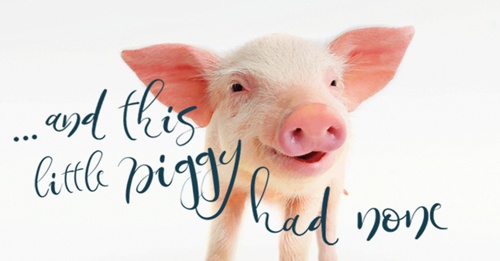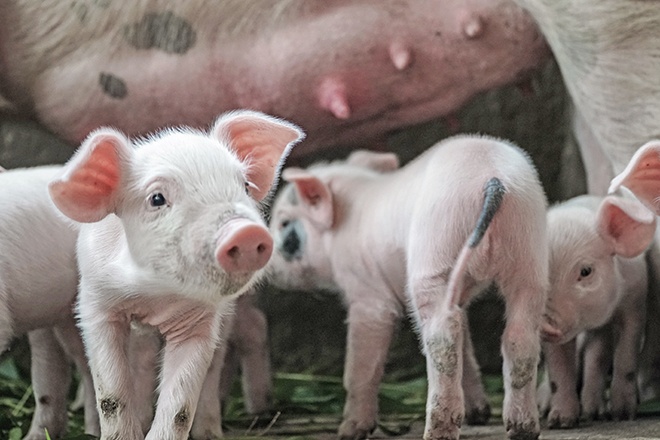ABOVE: Piglets are commonly born with low iron reserves. Photo: Kameron Kincade
Most producers understand that iron is an essential nutrient for all livestock, vital for producing the proteins that enable red blood cells to carry oxygen around the body and facilitate normal growth.
Yet piglets in particular are commonly born with low iron reserves.
That’s why it’s become standard global practice to inject piglets with doses of up to 200mg of supplementary iron to prevent anaemia, particularly in the first 60 days of life when their body weight should increase tenfold.
However, in doing so, producers bear an important responsibility.
Ultimately, they’re not only breeding pigs but preparing a food product for human consumption.
That’s why it’s important for producers to realise that impurities in injectable iron products are a serious concern for the agricultural industry.
An independent study, published in the Journal of Swine Health and Production, analysed 16 injectable iron products from around the world, testing them in particular for heavy metal impurity levels including arsenic, cadmium, chromium, cobalt, lead and mercury.
In 15 of these products, the levels of arsenic, chromium and lead exceeded the permitted daily exposure limits for humans.
The study concluded that arsenic, chromium and lead could inadvertently be administered to pigs receiving iron injections.
Though the effects of these heavy metals in humans is well known, the effects in young pigs is yet to be determined.
Choose a ‘heavy metal-free’ injectable iron product for your piglets
One product tested ‘clean’ in terms of levels of chromium, lead and arsenic below permitted daily exposure limits.
That product was Uniferon, which contains 200mg/mL of iron.
Uniferon is manufactured without the use of organic solvent or cyanide, avoiding trace residues of heavy metal impurities.
It’s the one brand of injectable iron that met human pharmaceutical standards.
The quality of injectable products depends on the steps taken to avoid and remove impurities that may be introduced during manufacture.
The 2018 tests demonstrate that the way in which Uniferon is manufactured makes this goal achievable.
The tests provide reassurance that producers can administer quality iron without the risk of heavy metal impurities.

Abbey Animal Health’s Uniferon tested ‘clean’ in terms of levels of chromium, lead and arsenic below permitted daily exposure limits.
Heavy metals don’t belong in iron products
Balancing animal health and welfare while meeting food standards is paramount.
Producers and veterinarians need to be aware that heavy metals simply don’t belong in these products and don’t need to be there.
Consumer expectations are also driving retailer and producer behaviours.
Consumer trends towards eating animal products that are minimally processed – such as the ‘clean eating’ movement – place more responsibility on the shoulders of injectable iron manufacturers and producers to meet these expectations.
Not only should the product consistently deliver the correct amount of iron, it shouldn’t be contaminated with heavy metal impurities.
Put simply, to maintain the health and profitability of its animals, the industry needs ‘clean’ injectable iron products.
The potential for iron products to deliver elevated levels of heavy metals to very young piglets is a concern, especially when there is no need to compromise.
Pig producers can now make an educated choice by choosing ‘clean’ iron to safely and effectively prevent iron deficiency and anaemia within their litters.








